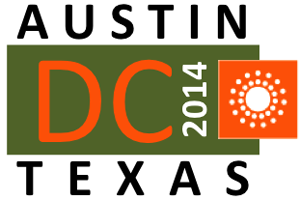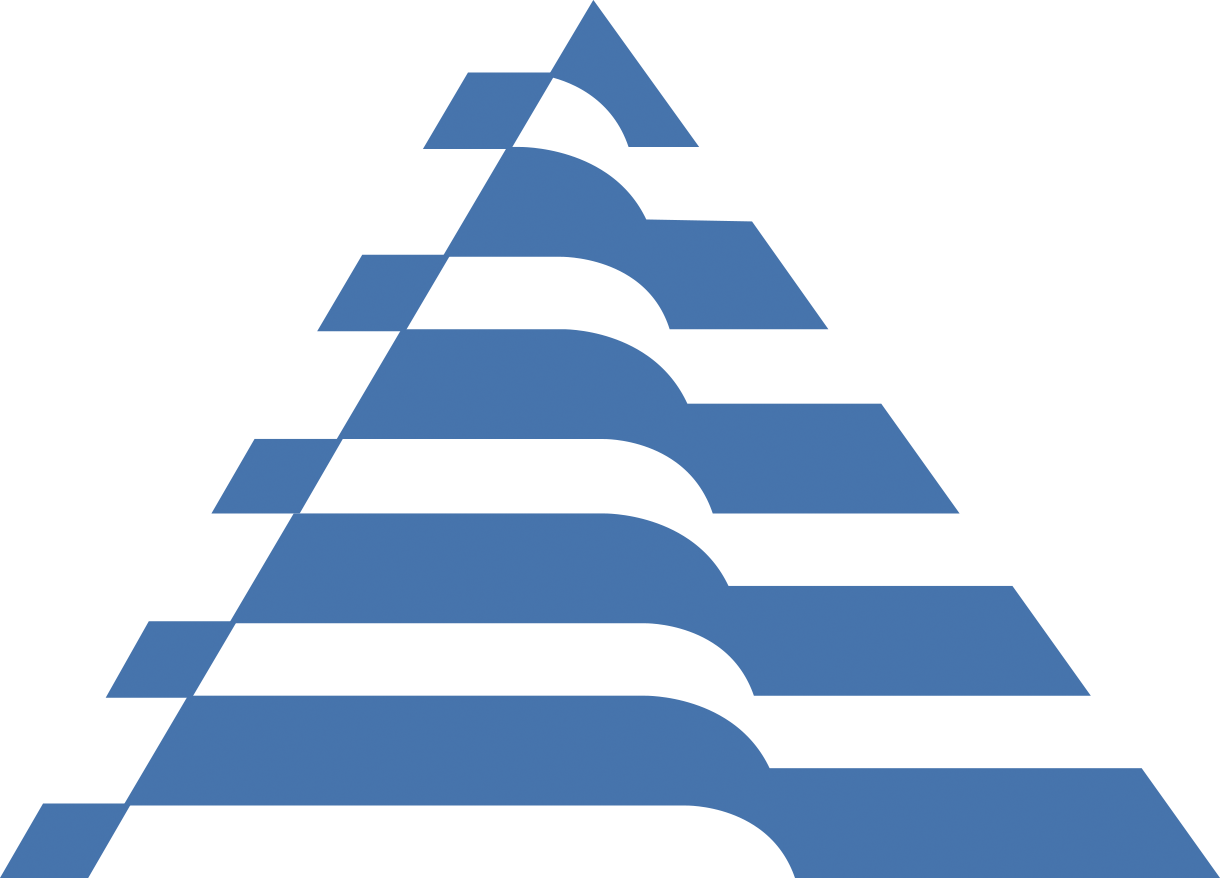
Metadata Intersections: Bridging the Archipelago of Cultural Memory
International Conference on Dublin Core and Metadata Applications
8-11 October 2014, Austin, Texas, USA
Metadata is fundamental in enabling ubiquitous access to cultural and scientific resources through galleries, libraries, archives and museums (GLAM). While fundamental, GLAM traditions in documentation and organization lead to significant differences in both their languages of description and domain practices. And yet, the push is on for "radically open cultural heritage data"* that bridges these differences as well as those across the humanities and the natural sciences. DC-2014 will explore the role of metadata in spanning the archipelago of siloed cultural memory in an emerging context of linked access to data repositories as well as repositories of cultural artifacts.
*John Voss, « Radically Open Cultural Heritage Data on the Web »
 Deadlines & Important Dates
Deadlines & Important Dates
- Peer-Reviewed Papers, Project Reports & Posters
- Submission Deadline EXTENSION: 3 May 2014 17 May 2014
- Author Notification: 12 July 2014
- Final Copy: 16 August 2014
- Special & Panel Sessions, Tutorials & Workshops
- Submission Deadline EXTENSION: 3 May 2014 17 May 2014
- Author Notification: 1 June 2014
- Best Practice Posters & Demonstrations
- Submission Deadline EXTENSION: 2 June 2014 1 October 2014 (1 week before Conference)
- Author Notification EXTENSION: 2 June 2014 1 October 2014 (1 week before Conference)
Start here to submit a paper to this conference:
« STEP ONE OF THE SUBMISSION PROCESS »
If you have difficulty with the submission process, email Stuart Sutton at sasutton(at)dublincore(dot)net!
Beyond the conference theme, papers, reports, and poster submissions are welcome on a wide range of metadata topics, such as:
- Metadata principles, guidelines, and best practices
- Metadata quality (methods, tools, and practices)
- Conceptual models and frameworks (e.g., RDF, DCAM, OAIS)
- Application profiles
- Metadata generation (methods, tools, and practices)
- Metadata interoperability across domains, languages, time, structures, and scales
- Cross-domain metadata uses (e.g., recordkeeping, preservation, curation, institutional repositories, publishing)
- Domain metadata (e.g., for corporations, cultural memory institutions, education, government, and scientific fields)
- Bibliographic standards (e.g., RDA, FRBR, subject headings) as Semantic Web vocabularies
- Accessibility metadata
- Metadata for scientific data, e-Science and grid applications
- Social tagging and user participation in building metadata
- Usage data (paradata/attention metadata)
- Knowledge Organization Systems (e.g., ontologies, taxonomies, authority files, folksonomies, and thesauri) and Simple Knowledge Organization Systems (SKOS)
- Ontology design and development
- Integration of metadata and ontologies
- Search engines and metadata
- Linked data and the Semantic Web (metadata and applications)
- Vocabulary registries and registry services
 Submissions
Submissions
- All submissions for papers, reports, extended poster abstracts, community workshops, special session and tutorials must do so through the DCMI Peer Review System (see the "Step one of the submission process" link above).
- Author registration with the peer review system and instructions for the submission process appear under the "Information for Authors".
- All submissions must be in English.
- All paper, report, and extended poster abstract submissions will be peer-reviewed by the International Program Committee.
- Unless previously arranged, accepted papers, project reports and posters must be presented in Austin by at least one of their authors.
Submissions for Asynchronous Participation
With prior arrangement, a few exceptional papers and project reports will be accepted for asynchronous presentation by authors unable to attend in person. Submissions accepted for asynchronous presentation must follow both the general author guidelines for submission as well as the following additional instructions:
- Video presentation (MPEG-4 AVC): 15-20 minutes
- Skype capability during assigned session for synchronous interaction with delegates
For exact instructions for screencast preparation and submission, see: «http://dcevents.dublincore.org/IntConf/index/pages/view/remote». Remote authors presenting asynchronously and conference delegates will have the opportunity to interact during the the assigned conference session.
The presenting author of a paper or project report is required to register for the conference at a reduced fee.
 Publication
Publication
- Accepted papers, project reports and poster abstracts will be published in the official Conference Proceedings at «http://dcpapers.dublincore.org/» within 2 months of the close of the conference. The full proceedings will also be published here on the conference website the first day of the conference.
- Special session and community workshop session abstracts will be published and made permanently available in the online conference program only.
- Papers, research reports and poster abstracts must conform to the appropriate formatting template available through the DCMI Peer Review System.
- Submitting authors in all categories must provide basic information regarding current professional positions and affiliations in the submission metadata as a condition of acceptance and publication.
Submission Categories
 Peer-Reviewed Program
Peer-Reviewed Program
PEER-REVIEWED FULL PAPERS (8-10 pages; Peer-reviewed)
Full papers either describe innovative work in detail or provide critical, well-referenced overviews of key developments or good practice in the areas outlined above. Full papers will be assessed using the following criteria:
- Originality of the approach to the topic and potential for implementation
- Quality of the contribution to the implementation community
- Significance of the results presented
- Clarity of presentation
PEER-REVIEWED PROJECT REPORTS (4-5 pages; Peer-reviewed)
Project reports describe a specific model, application, or activity in a concise presentation. Project reports will be assessed using the following criteria:
- Conciseness and completeness of technical description
- Usability of the technical description by other potential implementers
- Clarity of presentation
PEER-REVIEWED POSTERS (1-2 pages; Peer-reviewed)
Posters are for the presentation of projects or research under development or late-breaking results. Poster submissions should consist of a one-two page extended abstract. Posters will be assessed using the following criteria:
- Concise statement of research or project goals and milestones
- Significance of the research or project
- Framing of key barriers and future research
- Statement of results and accomplishments
- Clarity of presentation
One or more sessions will be scheduled for display and discussion of posters at the conference venue. Instructions on the preparation of the display poster can be found at «http://dcevents.dublincore.org/index.php/IntConf/index/pages/view/posterAuthors»
 Special and Panel Sessions
Special and Panel Sessions
Special and panel sessions are organized by experts in a specific area of metadata. Each special session serves as a focused exchange of the latest research and/or best practice in the area. A proposal for a special session consists of a single document of approximately 800-1,200 words in length containing:
- Session title
- 35-50 word abstract for use in promoting the session
- Brief description of the scope and motivation for the session
- Names and brief CVs of session facilitators, presenters, or panelists
- Brief CVs of the organizers (if different from #4 above)
 Best Practice Posters & Demonstrations
Best Practice Posters & Demonstrations
DCMI is committed to advancing metadata practice in the field. Best Practice Posters & Demonstrations is a non-peer reviewed track that encourages metadata practitioners in memory institutions, galleries, government and the private sector to showcase work demonstrating innovative approaches to metadata best practices.
 DCMI Community & Task Group Work Sessions
DCMI Community & Task Group Work Sessions
DCMI Community & Task Group work session are intended to: (1) advance the specific work of DCMI entities as defined at «http://dublincore.org/groups/#communities»; and (2) to set the work agenda for the Community or Task Group for the coming year. Note: Communities wanting to present a special session or a panel in the area of the Community's interest should submit a proposal under Special & Panel Sessions above.
PROGRAM COMMITTEE CHAIRS
- William Moen
- Department of Library and Information Sciences, College of Information, University of North Texas, United States
- Amy Rushing
- Special Collections, University of Texas at San Antonio Libraries, United States
Author Guidelines
Full papers, project reports and poster abstracts are accepted for publication in the DC-2014 Conference Proceedings. Submissions for review may be submitted using Open Office (.odf), Microsoft Word (.doc) or Rich Text Format (.rtf).
In order to guarantee readability and uniformity of appearance, authors are expected to use the specifications in in the table below in formatting their submissions. An MS DOC template is available as well as a PDF illustrating the specifications:
Reference to the « published proceedings for DC-2013 » may be of further assistance with matters of document formatting.
Maximum submission length for each category of submission as well as evaluation criteria are set out in the Call for Papers at « http://dcevents.dublincore.org/IntConf/dc-2014/schedConf/cfp » .
DCMI adheres to a blind peer review process in which reviewer identities are unknown to authors. It does not use a double-blind review process; therefore, author identities are known to reviewers.
Submission Formatting Specification
- Page size: ISO A4 (8.27 in x 11.69 in / 21 cm x 29.69 cm)
- Top and bottom margins: 1.18 in / 3 cm
- Left margin: 1.14 in / 2.9 cm
- Right margin: 1.13 in / 2.87 cm
- Header from top: .5 in /1.27 cm
The resulting single text column is 6 in / 15.23 cm
| Template Tag | Font | Size | Spacing |
|---|---|---|---|
| Header | Times Roman | 11 pt, Italic | Alignment: Centered Space before: 0 pt Space after: 0 pt Spacing: Single |
| Title | Arial | 14 pt, Bold | Alignment: Centered Space before: 12 pt Space after: 3 pt Spacing: Single |
| Author | Times Roman | 12 pt | Alignment: Centered Space before: 0 pt Space after: 0 pt Spacing :Single |
| Heading Abstract | Arial | 12 pt, Bold | Alignment: Justified Space before: 0 pt Space after: 0 pt Spacing: Single |
| Abstract | Times Roman | 11 pt | Alignment: Justified |
| Heading 1 | Arial | 12 pt, Bold | Alignment: Left Space before: 12 pt Space after: 6 pt Spacing: Single |
| Heading 2 | Arial | 11 pt, Bold | Alignment: Left Space before: 12 pt Space after: 3 pt Spacing: Single |
| Para Normal | Times Roman | 11 pt | Alignment: Justified Indent: first line: 0in/0cm Space before: 0 pt Space after: 0 pt Spacing: Single |
| Para Indent | Times Roman | 11 pt | Alignment: Justified Indent first line: .16in/.41cm Space before: 0 pt Space after: 0 pt Spacing: Single |
| Quotation | Times Roman | 11 pt | Alignment: Justified Indent right: .25 in/.635cm Indent left: .25 in/.635cm Space before: 3 pt Space after: 0 pt Spacing: Single |
| Caption Label | Times Roman | 9 pt | Alignment: Centered Space before: 0 pt Space after: 0 pt Spacing: Single |
Submissions for this conference were closed on 2014-10-01.
![]() DCMI's work is supported, promoted and improved by « Member organizations » around the world:
DCMI's work is supported, promoted and improved by « Member organizations » around the world:
 |  |  |
 |  |  |
 |  |  |
 |  |  |
 |
![]() DCMI's annual meeting and conference addresses models, technologies and applications of metadata
DCMI's annual meeting and conference addresses models, technologies and applications of metadata


